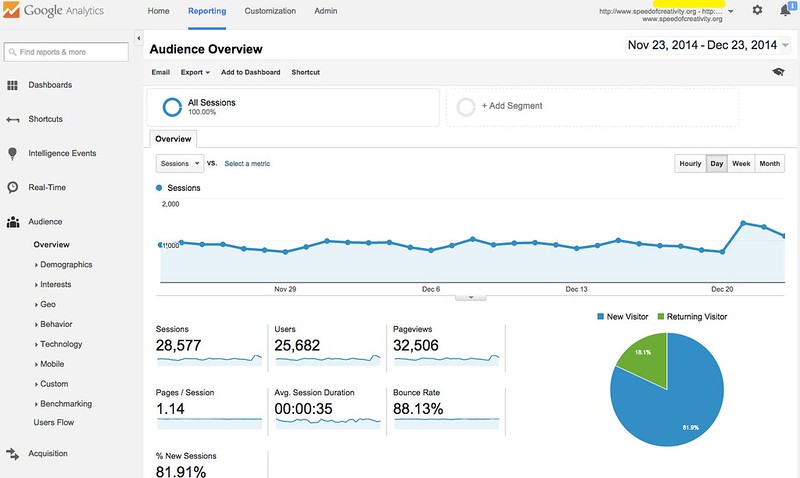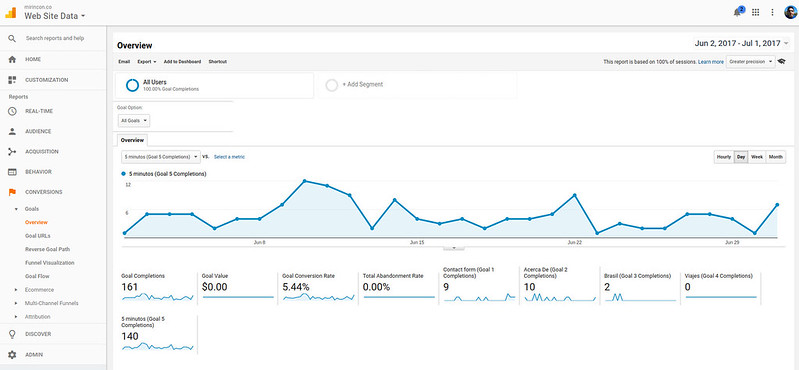
Top Benefits To Incorporating Google Analytics In Your SEO
Are you interested in learning more about your target market, setting structured goals, and improving your site’s overall Search Engine Optimization (SEO)? Incorporate Google Analytics (GA) into your digital marketing strategy and experience the following benefits:
Better Understanding Of Your Target Market
Determining your target market and creating personas of them is one of the most common marketing strategies out there. However, it’s worth noting that getting to know your target market doesn’t end there. After all, the more you learn about their preferences, the easier it will be for your team to maximize your website and cater to them. Therefore, SEO Marketing in the Philippines has made it a point to use Google Analytics to gain insights about your site visitors. These include the number of visitors you have and where they’re located.
Source: flickr.com
Improved Keyword Research and Content Marketing
Multiple tools make it easy for SEO Marketers to determine which keywords users search to locate your website. However, you can take it a step further with Google Analytics Site Search. Use it to identify the keywords or search terms users look for on your site specifically. Plus, you’ll also gain reports that indicate the specific pages your site visitors search from and the pages they visit from the list of search results.
Moreover, you can use these pieces of information to analyze the information you provide on your site. Are your users able to find the right products? Do the topics they’re searching for have their designated blog posts? Stay on top of news and updates in your industry, like the January 2020 Core Update, for example to gain further insight on the most popular keywords at the time. Utilize the answers to both questions as a reference to improve your content marketing. For instance, you may discover that some of your site’s visitors aren’t able to locate the appropriate blog posts for a certain topic. In this case, take it as an indicator that it’s time to improve its SEO.
Enhanced Tracking Of Your SEO Traffic
Have you checked your Google Data Studio reports recently? How much traffic does your site gain from Google and other popular search engines? Steadily monitor your performance using Google Analytics and add it to your list of key performance metrics. In addition to analyzing each page as it is, GA also ranks them according to their popularity. It uses their bounce rates, exit rates, and the time a user spends on each page as a few of its determining factors.
Moreover, GA enables you to create reports that list where your pages are most popular and which sites give you more traffic. This means that you’re gaining additional insight on which landing pages are most optimized as well. Use these reports and bits of information to your advantage the next time you see major fluctuations in your pages’ traffic.
Source: flickr.com
Monitored Goal Setting
Every company has their own goals. After all, that’s one of the primary factors why they don’t put an end to SEO. It may be short-term and specific like accomplishing projects within a few months. On the flip side, it may be a goal for the long run, such as ranking and staying on top of Search Engine Results Pages (SERPs). Regardless of what goals you’ve set, it’s highly recommended that you maximize GA as it allows you to monitor these goals too.
There are four kinds of goals you can set up in Google Analytics. These are goals regarding URLs, pages and their respective number of visits, time (or visit durations), and events.
- URL Destination Goals
Oftentimes, when users complete a major transaction, like checking out of an e-commerce site, they’re often redirected to a thank you page. This is an example of a destination goal you can set. And, after a certain amount of time, for example, you’ll be able to identify and compare the number of transactions that have occurred over the past few months.
-
Page and Visit Goals
Are your site visitors actively engaged when they browse through your web pages? Use GA to keep track of the number of pages each user goes through for each session with Page goals. You can even assign each page its own monetary value. This way, you’ll be able to determine the number of clicks it has and its actual conversion rate.
-
Time Goals
Your Time goals will vary depending on your intent. For instance, companies that specialize in customer service and assistance are more likely to aim for a shorter time duration. This tells them that their Frequently Asked Questions (FAQs) and other similar pages provide the necessary answers to address their users’ concerns. In some cases, this may even be one of their top-most priorities. Sites may set goals for longer time durations to prove that visitors actively take their time to read their content.
-
Event Goals
Finally, you have goals that act as Events. These are combinations of a set of conditions (such as categories, actions, labels, and values). Simply put, the more events (like downloaded files or filled up forms) your site gains, the more conversions you have.
Would You Use Google Analytics?
Improve your overall marketing strategy by conducting routine SEO audits and maximizing new tools. Set goals and stay accountable for them and watch your company grow over time. Let us know what kind of goals you would set and how you’re going to incorporate Google Analytics into your SEO strategies!
















Voluum
Google Analytics is a really helpful tool to monitor and understand your business traffic. Every website owner must have this installed to monitor their website performance regularly.